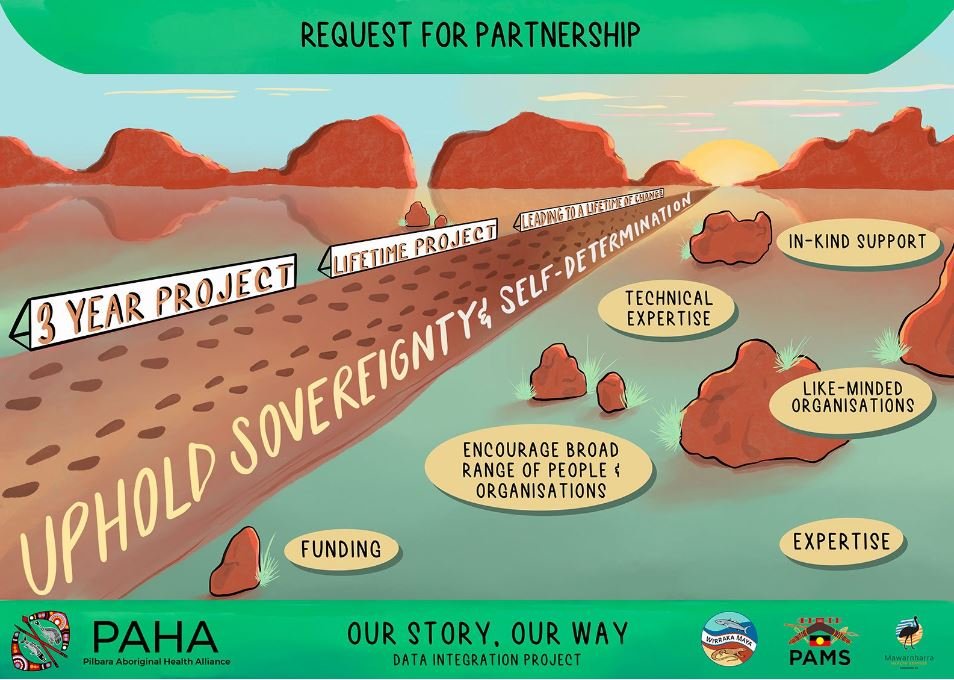‘WE’RE LOSING PEOPLE TOO EARLY’: PILBARA ABORIGINAL HEALTH ALLIANCE
Ashley Councillor
BY ASAD KHAN
Ashley Councillor remembers the funerals. Too many, too often, he says.
“I’ve seen a lot of devastation around poor health,” he said.
“Renal disease, cancer … our people are dying too early. I’ve seen a lot of devastation around poor health, not only in my family but right across our Aboriginal and Torres Strait Islander communities,” says Mr Councillor, a Banjima man with deep roots in the Pilbara.
Born and raised in this region, Mr Councillor’s family ties stretch across the Banjima, Nyiyaparli, Ngarluma and Yindjibarndi peoples.
Now, he has become the first Aboriginal person appointed as Chief Executive Officer of the Pilbara Aboriginal Health Alliance (PAHA), a historic move for the region and a significant step forward for Aboriginal-led health governance.
A LEADER WITH LIVED EXPERIENCE
Born and raised in the Pilbara, Councillor’s family ties stretch across the Banjima, Nyiyaparli, Ngarluma and Yindjibarndi peoples.
He comes to PAHA with a strong track record in strategic leadership and cultural governance.
Most recently, he was Acting Chief Operating Officer for Gumala Aboriginal Corporation, where he helped drive community engagement and a member-led approach to decision-making.
He achieved this by holding on-country consultations, using local languages or interpreters where needed, and making sure elders and key family groups have a seat at the table before major decisions are made.
But for him, leadership is more than boardrooms and briefings.
Growing up in the region, seeing the struggles of his mob and others made him realise there was a dire need for change.
“Improving the health and wellbeing of Aboriginal people in the Pilbara is not just a professional goal for me, it’s a personal mission,” he said.
Among his first major goals is delivering the long-awaited renal dialysis unit in Tom Price. This initiative could allow many Aboriginal people to return home to country while receiving treatment.
According to the Australian Institute of Health and Welfare, Aboriginal and Torres Strait Islander people are nearly seven times more likely to be diagnosed with end-stage kidney disease than non-Indigenous Australians.
Shifting the dial on country
In remote areas like the Pilbara, the rates are even higher, with limited access to dialysis services compounding the problem.
“We think there’s nothing better than having people return to country and receive their health treatments while living back home,” he said.
“It will be hugely beneficial, not just for the individual patient and their family, but for the broader community. Cultural obligations, community knowledge, and harmony all improve when people are home.”
Currently, many Pilbara patients are forced to relocate to towns far from home even Perth, to access dialysis and other essential treatments.
This relocation often leads to significant hardships. Without affordable accommodation options, some patients are compelled to sleep rough or in overcrowded conditions.
Housing, health and preventable disease
While better access to treatment is a priority, Mr Councillor is equally focused on prevention.
He said that poor housing remains one of the biggest contributors to health inequality in the Pilbara.
“In remote communities, the living standards are just not appropriate,” he said.
“It’s impacting not just shelter, but people’s overall health.”
In remote areas, the shortage of adequate housing often results in overcrowding, which facilitates the spread of communicable diseases and exacerbates existing health conditions.
Preventable diseases and conditions long eradicated in urban Australia are still widespread in some communities due to overcrowding and unsafe infrastructure.
Board backs Aboriginal-led future
PAHA Chairperson Stanley Watson welcomed Mr Councillor’s appointment.
“He is the right person for our communities and organisation,” Mr Watson said.
“Ashley brings the cultural understanding, professional expertise, and personal commitment that’s needed to move us forward.”
The board also acknowledged outgoing inaugural CEO Chris Pickett, who helped steer PAHA through the height of the COVID-19 pandemic and built strong foundations for the alliance’s role across the region.
Our Story, Our Way
Mr Councillor will continue PAHA’s Our Story Our Way project, a community-driven initiative aimed at shaping health services through local voices and values.
He’s clear about the path ahead: real, lasting health improvements will come from within.
“It’s not just about primary health care,” he said.
“It’s about improving people’s lives on country, in community, and through culture.”
Listen to Asad Khan speak with Ashley Councillor:






